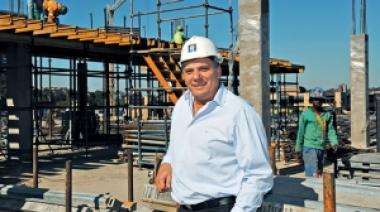Stefanutti Stocks records decline in revenue
 The industry is very competitive in all our businesses, CEO Willie Meyburgh said on Thursday. Ongoing global and domestic economic uncertainty meant both the South African and southern African construction markets were tough,
The industry is very competitive in all our businesses, CEO Willie Meyburgh said on Thursday. Ongoing global and domestic economic uncertainty meant both the South African and southern African construction markets were tough,
Construction major Stefanutti Stocks sees slide revenue and total profit fall in the turbulent African and Middle Eastern construction and engineering markets.
Revenue fell 9% and total profit dropped more than 8% in the year to February.
Contract revenue of R9.7bn from continuing operations fell by R900m from the previous year’s R10.6bn, mainly due to a drop in turnover from the building business. Operating profit jumped from R335m in the previous year to R392m.
But after excluding the profit on the sale of an investment property, operating profit rose 10% to R370m, with gross margins improving from 3.2% to 3.8%. However, due to deteriorating markets in the Middle East, the group had also disposed of its 49% investment in Zener Steward Electromechanical in Dubai.
“The industry is very competitive in all our businesses, CEO Willie Meyburgh said on Thursday. Ongoing global and domestic economic uncertainty meant both the South African and southern African construction markets were tough, he said. This, in turn, was characterised by delayed payments and reductions in advance payments from clients, and had also resulted in a “material increase” in interest-bearing borrowings to R636m from R449m last year, and an associated increase in interest charges.
Together with the interest on the third and fourth instalments of a Competition Commission penalty for collusion in the industry, this had hurt the group’s finance costs.
Meyburgh said Stefanutti Stocks still owed about R130m plus interest in competition authority fines, which would reflect in this financial year.
Meyburgh said the group was not seeing much spend on large infrastructure projects by either the public or private sectors. Contracts were mostly worth less than R350m, he said.
The order book was R12.7bn, of which R4.8bn came from work outside SA’s borders.
Raymond Parsons, an economist at North-West University business school, said there was “no quick fix to get the economy out of its present doldrums”. The overarching task now was to avert SA’s investment rating being downgraded to junk status next month.


















